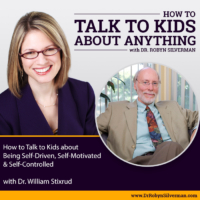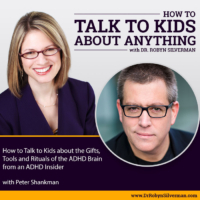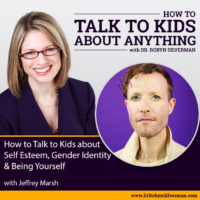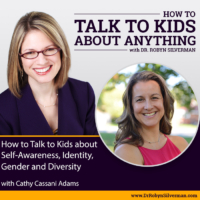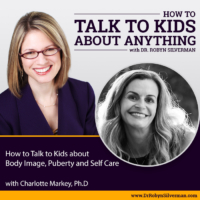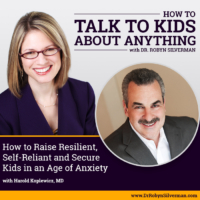How to Talk to Kids about Beating the Odds, Acceptance & True Self Worth
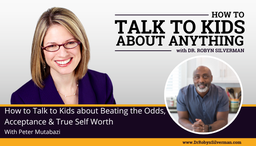
What is to come for a child who is told he is garbage? Worthless? Beaten to the ground? I have often said that children who have the love, kindness and acceptance of an adult—or several adults—can be the difference. As you might remember me saying, Search Institute found that many young people don’t feel that they have at least 3 key adults to turn to in a time of need and challenge. Our next guest had a very hard start to his life—abused by his father and watching his mother and siblings meet that same fate. He survived the streets of Kampala Uganda and, due to the potential that someone saw in him- wound up going to school and altering his life for the better in every possible way. My next guest will help us to understand how to talk to kids about acceptance and true self-worth. He has a remarkable story.
Special guest: Peter Mutabazi
What is to come for a child who is told he is garbage? Worthless? Beaten to the ground? I have often said that children who have the love, kindness and acceptance of an adult—or several adults—can be the difference. As you might remember me saying, Search Institute found that many young people don’t feel that they have at least 3 key adults to turn to in a time of need and challenge. Our next guest had a very hard start to his life—abused by his father and watching his mother and siblings meet that same fate. He survived the streets of Kampala Uganda and, due to the potential that someone saw in him- wound up going to school and altering his life for the better in every possible way. My next guest will help us to understand how to talk to kids about acceptance and true self-worth. He has a remarkable story.
Peter Mutabazi is an entrepreneur, an international advocate for children, and the founder of Now I Am Known, a corporation that supplies resources to encourage and affirm children. A single father and foster dad, Mutabazi is a former street kid who has worked for World Vision, Compassion International, and the Red Cross. He has appeared on media outlets such as the BBC and The TODAY Show and continues to be a passionate speaker. He currently lives in Charlotte, North Carolina. For more information visit: www.nowiamknown.com and follow Peter @fosterdadflipper. He has a book out right now called Now I am Known.
Important Messages:
- It begins with me like a stranger who did not know me. A stranger who had never seen me before. We didn’t speak the same language. We didn’t look alike. But somehow saw potential in me. And so for me, what lights me up is when I see potential in others.
- I feel that I can impact on the children and the entire bio family as well.
- From a very early age, I had to understand that there was no life for me. That there was no hope. I knew my chances of survival were very, very small.
- No food. So that was the first hurdle that I really had to deal with, you know as a kid. And the abuse too. So not only the misery and hopelessness was lack of food and going to work as a kid at a very early age. I mean, at four I could go fetch water three miles away. But while you’re getting to fetch water, that’s where you get to meet the other kids who abuse you. Then coming home and having a dad who didn’t see any positive in anything you did, you know the moment he saw you, you garbage, ‘you stupid boy,’ ‘what are you doing here?’ My own father was my worst enemy.
- You also had to endure watching your mother get abused. Your mother had to endure watching you getting abused, and you didn’t hold that against her because if she came to rescue you, then she would’ve been abused again. There was an understanding between the two of you that unfortunately this was the reality, and there was that hopelessness. There was just part of the reality. Then you escaped. You had to endure some, some hardships, but also you got a sense of family and freedom at the same time.
- I think the hardest part as kids was a forced diet to kids is the guilt. Most of my abuse for my mother was the guilt because she was fighting for you to have a meal- she got a beating for that. Or she wanted us to be able to go to school. So as a 3, 5, 10 year old watching your mom trying to advocate for you, but she’s getting punished for that, that guilt is what is the hardest part to deal with.
- Running away wasn’t like I was looking for a better life. It was more of, I know he’s gonna kill me, but why give him the joy of killing me? I’d rather, you know. So for me, it was more of I’m gonna run and I would rather die in the hands of a stranger, you know?
- The only way you can get food when you are away from family is by stealing it.
- I looked at myself as garbage.
- Developed a relationship with a man named James who wanted to put you into a boarding school. At first, didn’t trust him—kind humans actually meant abuse. Danger. But I waited for that danger to show up, but it didn’t show up.
- I’d never felt I was human enough to go to school. Cause I always thought I was less of a human being. What he changed is, he said, if you go to school, there will be lunch, dinner, and breakfast. Three meals a day. I was like, that, that must be heaven. Gave me shoes.
- Cause I had never wore shoes until 16 years old. I literally, I never had a pair of shoes.
- What shocked me was I was at my lowest point of life. For him to see the best in me is really, is really what changed for me. I was trying to steal from him. But he didn’t say, go away. But he just gave me food. Not once- but all the time. And I think I felt, ‘maybe I’m human. Maybe there’s something in me that I’m worthy of feeding in a way.’
- Taking the time to gain the trust of the children who come into your house, who you meet and who you love, and at the same time, helping them to see their humanity and to see that they are worthwhile no matter what their past is, is what makes you so special.
- Now- as a foster parent: how do I really help manage the expectation, but also feel that they’re safe and there’s food for them always at all times.
- He took me in a boarding school, they gave me a bunk bed, I slept on the floor because I didn’t trust, that’s no way. Then the kids would want me to join, to go play soccer. I, for me, the instant thing was to fight back. I was like, what? Wait a minute. They don’t, they don’t want to fight me. They want me to go play. I’ve always seen everyone as an enemy and how to protect myself, but that’s not what I should be thinking about or worried about, that these people actually care that they want me to come alongside.
- You moved from fighting to wanting to learn. You, you became a real student.
- So this man would say, Peter, you’re brave. And I’m like, what does that mean? Brave? Come on. You know, I spend most of my life just being the, the stepping stool for everyone. He says, Peter, if I slept, I would never be able to live on the street for one day. For you to live on the street for five years, you are brave. So he began to see what I saw as negative, make them into positive, you know?
- So now I began to really see what he’s saw in me. Like, oh, he thinks I’m chosen. Maybe I’m chosen. He thinks I’m a gift. Maybe I’m a gift. And the teachers too, they’ll see potential and say, Peter, you are smart. I’m like, really? So I began to believe in what I had by the words of a affirmation that I had from them.
- Now, I began to say, how can I show my father that he’s wrong? Because he, all these, these are five words I had from my dad. You are nobody. You’ll never mount anything. I wish you are never born, so I don’t have to feed you. And you’ll never mount anything hearing those, I believe in them. So now I thought, wait a minute, everything he said, I cannot actually disprove to him that that’s not true, and that’s not who I am. So my whole goal was to work so hard to disprove what my father thought of me. And that worked in some way.
- Yes- need to relabel kids! When we take a child who has been beaten down by negative statements, by negative labels, that there is a chance for them to adopt these positive labels. If we help them to see them, and we use the words, we converse with them, we say it to them so that they can finally adopt them themselves.
- How do you help them to see their worth and that they are accepted and loved for who they are, given that background that they’re coming from, how, how do we help to turn that around? How have you helped to turn that around for them?
- Your foster kids- How do you help them to see their worth and that they are accepted and loved for who they are, given that background that they’re coming from, how, how do we help to turn that around? How have you helped to turn that around for them?
- Validate. I understand what you’re feeling. And then for me as a parent to say, now how do I create an environment where this kid will feel he’s loved, he’s wanted, he’s worth it. And also what he went through is not his fault, you know? I always go back to my story.
- How do you get through the hatred and the hopelessness to find forgiveness?
- I had to really learn my father was his own man and his own responsibility. But I didn’t have to follow the same trait in some way. That’s, for me, helped me to know that when someone is angry, that’s, that’s them feeling whatever they’re feeling. But they’re not angry because it’s not my fault.
- I remove myself and say, that’s them feeling so bad, and I have to be a dad at this moment. You know, though, though, the, the bad words are coming towards me, you know, I just happen to be the person that is safe for them to say that I have to accept them, but not repeat or think the negative towards them in some way, but rather come in as I want to be their son.
- What it means to be a father? Watching the right way for it to be done. I began to learn how he talks to his kids, how he treats his girls, how he treats his wife. And that really became my motto of life. Like, if I ever be, I want to be just like him, you know?
- These key adults in the lives of children, you might not be a parent. You may be a coach or a teacher, or somebody who works with children in a different capacity, but you are so important that you can influence a child by inviting them to your office, by speaking to them kindly, by telling them that they’re worthwhile, by telling them that you see potential in them.
- As foster parents, sometimes we, we don’t know how to ask. But we all need help in big and small ways. This family have adopted kids, but how can I come alongside them and just, you know, be that mentor or come alongside and help in initiative that I, I can’t, so we can all do something small. There’s, there’s nothing small. We can all do something.
Notable Quotables:
- “It begins with a stranger who did not know me. A stranger who had never seen me before. We didn’t speak the same language. We didn’t look alike. But somehow he saw potential in me. And so for me, what lights me up is when I see potential in others.”
- “I think the hardest part as kids was a forced diet of guilt. As a 3, 5, 10 year old, watching your mom trying to advocate for you, but she’s getting punished for that.”
- “Running away [from my father] wasn’t like I was looking for a better life. It was more of, ‘I know he’s going to kill me, but why give him the joy of killing me?’ I’d rather run away and die in the hands of a stranger, you know?”
- “I was garbage. Useless. I had no raw or worth of anything. And I accepted that because that’s what I looked like, that’s what I smelled like. We lived in the trash with stray animals and sometimes people would throw food and we’d have to run to get it before dogs. So, in some way, literally I felt like I was a straight animal. That’s how people looked at me.”
- “What shocked me was I was at my lowest point of life. For him to see the best in me is really, is really what changed for me. I was trying to steal from him. But he didn’t say, go away. But he just gave me food. Not once- but all the time. And I think I felt, ‘maybe I’m human. Maybe there’s something in me that I’m worthy of feeding in a way.’”
- “I had an aha moment. They’re not here to punish me. They really want to help.”
- “So this man would say, ‘Peter, you’re brave.’ And I’m like, ‘what does that mean? Brave? Come on.’ You know, I spend most of my life just being the stepping stool for everyone. He says, ‘Peter, I would never be able to live on the street for one day. For you to live on the street for five years, you are brave.’ So he began to see what I saw as negative, make them into positive, you know?”
- “I saw a father being kind to his kids. I saw how they played. I saw how they sat. That became my ideal. If I could have that…I want to have that.”
- “I began to really see what he’s saw in me. H thinks I’m chosen. Maybe I’m chosen. He thinks I’m a gift. Maybe I’m a gift. And the teachers too, they’ll saw potential and said, ‘Peter, you are smart. I’m like, really? So I began to believe in the affirmation that I had from them. Every time I doubted myself, they saw the best and helped me to see that I could do.”
- “I began to say, how can I show my father that he’s wrong? Because these are the words I had from my dad. ‘You are nobody. You’ll never mount anything. I wish you are never born, so I don’t have to feed you. And you’ll never amount anything hearing those,’ I believe in them. So now I thought, wait a minute…that’s not who I am. So my whole goal was to work so hard to disprove what my father thought of me. And that worked in some way.”
- “Once we remove the negative and replace it with a positive or what is possible, then for them, they begin to dream.”
- “It is the small things that truly changes the life of our kids.”
- “The African saying is ‘it takes a village to raise a child.’ We can all participate.”
- “We can all do something small. There’s, there’s nothing small. We can all do something.”
Require teenagers to make decisions about their own lives. You become a good decision-maker, in part, by making decisions and learning from your mistakes, says Bill Stixrud of @SelfdrivenChild on #talktokids podcast
Click To Tweet
Resources:
- Book: Now that I am Known
- IG: @fosterdadflipper
- FB: Peter Mutabazi Foster Dad
- TW: @FosterDadFlippr
- https://nowiamknownfoundation.org/
Social Media for Dr. Robyn:
- facebook.com/DrRobynSilverman
- twitter.com/DrRobyn
- instagram.com/DrRobynSilverman
- facebook.com/HowToTalkToKidsaboutAnything
The post How to Talk to Kids about Beating the Odds, Acceptance & True Self Worth with Peter Mutabazi appeared first on drrobynsilverman.com.

